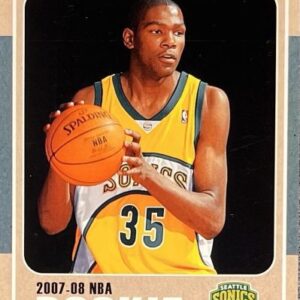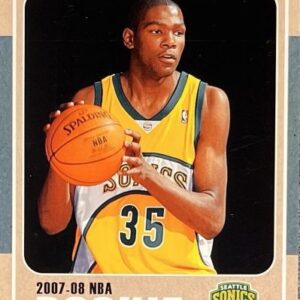The world of trading cards—once the domain of nostalgic collections and basement swaps—has now become a stage for legal drama as big business giants Panini and Fanatics face off in a courtroom showdown. What could have quietly unfolded as a corporate clash over new territories has turned into a public legal debacle, with Judge Laura Swain from the Southern District of New York steering the legal juggernaut forward. No verdict has been passed yet, but the stage has been set for a high-stakes legal battle that might redefine the trading card industry.
In a bold move, Panini fired the first shot earlier this year by filing an anti-trust lawsuit against Fanatics, alleging an unfair monopoly in the trading card market. This sparked after Fanatics snatched exclusive licenses from both the NFL and NBA, leaving Panini potentially on the sidelines. One could imagine the frustration of witnessing favorite stars being pinned exclusively to one company’s cards. In retaliation, Fanatics hit back with a lawsuit claiming Panini was meddling with its business—like accusing the referee of playing for the opposition.
The recent rulings from Judge Swain handed a bit of everything to each company, like a judge offering a child incentive with one hand while scolding with the other. On one side, Swain didn’t entertain Fanatics’ request to dismiss Panini’s anti-trust claims. Instead, she agreed Panini presented plausible evidence that Fanatics may have cornered the market skillfully, putting it in a position to dictate prices and usher competitors out of the arena with its deals with major sports leagues in its grip.
However, Judge Swain gave Panini’s damages claim the cold shoulder. She pointed out the irony of the situation; as one of the leading firms in the bloke of trading card giants, Panini might have thrived amid the constrained competition scene Fanatics created. It’s as if declaring, “Look, if you threaten to twiddle your thumbs before a giant yet stay in the ring, can you complain when you knock your opponent down too?”
Fanatics, hoping for victory on the unfair competition front, saw their efforts shot down. Swain ruled that Panini’s actions may have thrown obstacles in Fanatics’ corporate path, but they hadn’t crossed any legal lines. Imagine the legal team tossing their argument into the court amidst hope of scoring, only for it to bounce back short.
However, Swain offered Fanatics a lifeline by upholding their assertions that Panini endeavored to fence its employees, deterring them from joining the Fanatics’ roster by wielding threats of litigation. Such corporate espionage elements add a touch of drama, reminiscent of spy thrillers but with trading cards at the center.
The next chapter in this unfolding saga will usher in the discovery phase—a term echoing educational expeditions but far ripe with nails-biting legal scrutiny. Here, the scales might tip drastically based on sworn testimonies, unveiling of internal secrets, and key witness depositions. Such hefty courtroom uncoverings offer tantalizing clues, hinting at a fascinating insight into the corporate corridors of trading card moguls.
For the average trading card enthusiast, the echoes of this legal battle might appear as mere footnotes amidst display-related obsessions. However, the ripples of this case might jostle the realm of collectibles significantly. If the gavel favors Panini, welcoming fresh blood into the market becomes a real possibility—allowing other companies to shake up the established order and birth a golden age of card diversity. A fine thought, one might muse.
Yet, should Fanatics weather Panini’s assault and emerge victorious, one might ponder on the prospect of strengthening its hold—potentially shrinking the field for competitors and sparking challenges for hopeful entrants. Collectors, eyeing their treasure-trove for strategic investments, will be keenly observing which way the chess pieces move as judgments are passed and appeals play out.
Ideally, the conclusive rounds of this courtroom showdown may herald a period of rejuvenation or consolidation—equally poised to cater to nostalgic yearning or business conquest. Card collectors, much like sports fans, are no strangers to surprises. While they await the next wave of cards to brag about or barter with, this courtroom drama adds an element of narrative delight to their world—a saga written in legal briefs and trading cards.





